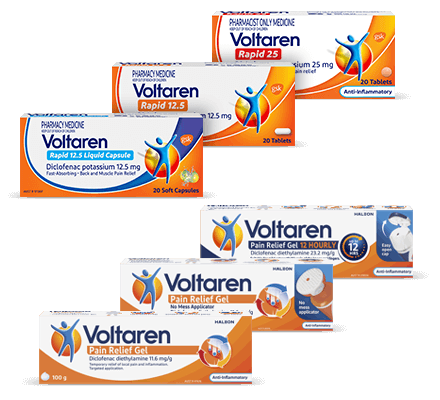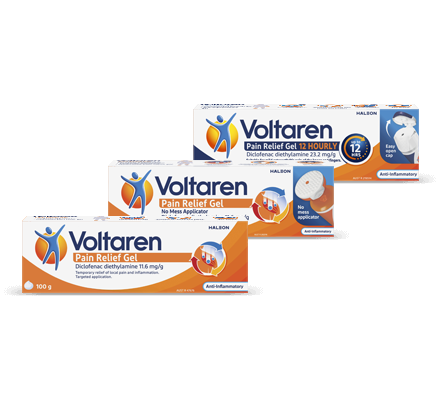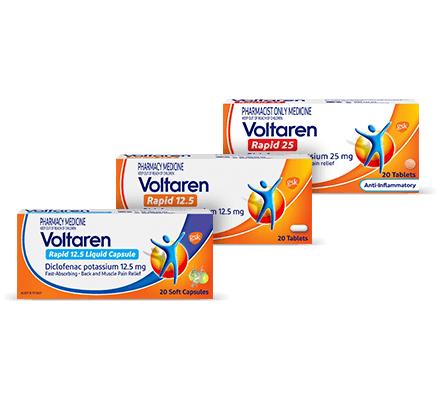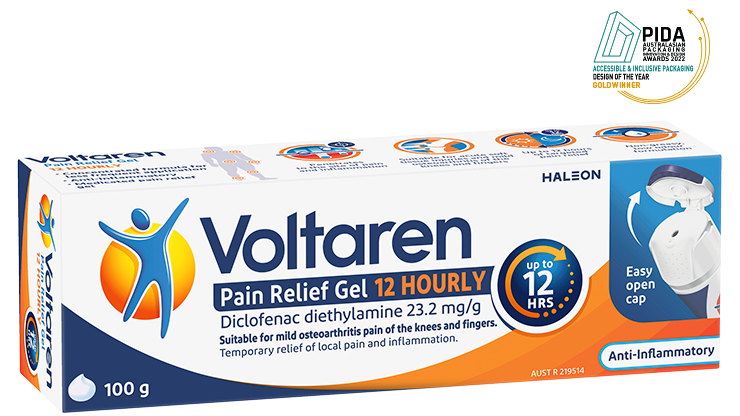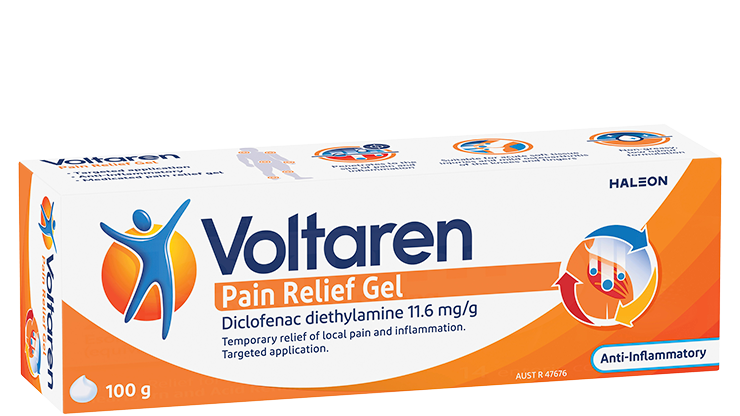Wondering how to relieve joint pain? Joint pain management is likely at the top of your list of important things to read up on if you suffer from joint pain. We use our joints every day, all day. That’s why joint pain can feel so ...present in our lives. But don’t let that stop you from doing the things that make you - you. Learn about the available joint pain management options so that you can put together a plan to start feeling a little more like yourself again and get back to the movement you love.
Joint pain is extremely common, and can be experienced in just about any joint in the body. Voltaren found that whilst 95% of people globally suffer from body pain at some point in their lives1, in the over 55’s joint pain and osteoarthritis afflicts a higher proportion of the global population than muscular pain – that’s a lot of people with joint pain! 30% of people globally suffer from weekly back pain, and 25% of people suffer from weekly neck pain2, and it can also affect the knees, hips, elbows, feet, and hands. It can range from mild to debilitating and can be chronic or acute.
There are a number of reasons you may be experiencing joint pain, including osteoarthritis, bursitis, tendonitis (e.g. tennis elbow), or even common strains and sprains that occur in day to day life or sports injuries!
It is important to understand what is causing your joint pain before you self-manage. If you are experiencing joint pain and you don’t know why, see your doctor.
In the below cases it is recommended that you visit a doctor, who will help determine the source of your pain and the most appropriate treatment:
- Your joint pain is accompanied by swelling, redness, tenderness and warmth around the joint
- Your joint pain lasts for more than 7 days with no signs of getting better
- Your joint is completely locked and immobile
- Your joint pain is accompanied by fever, but not other signs of cold and flu
- Your joint appears deformed

Home solutions for joint pain
Once you have ruled out the need for immediate medical attention, you may want to consider a number of home solutions for joint pain treatment. Home solutions can be straightforward, easy (we love easy!) and effective (we love effective, too!) ways to get joint pain relief so that you can get going again.
For short-term relief of joint pain, try out an at-home method like PRICE.
PRICE stands for:
- Protect the joint - Use a brace or wrap to protect the joint while it recovers
- Rest the joint - Resting the joint will give it time to repair on its own. Continued usage can aggravate the joint, making recovery longer.
- Ice the joint - Applying ice to the joint can reduce inflammation. Just be sure to wrap your ice pack in a towel before applying it. Placing a bare ice pack directly to your skin is not advisable.
- Compress the joint - Compress the joint using an elastic wrap.
- Elevate the joint - Elevate the joint above the level of your heart.
If you experience joint pain, your natural instinct may be to keep still and stop moving – especially when it hurts to do so. However, keeping moving is key for promoting joint mobility and function and treating your pain can help with this. Added bonus: moving more can boost your mood, always a plus! So lace up your trainers and head out for a walk.
A key tip for how to relieve joint pain is diet. Maintaining a healthy weight is really important to reducing stress on your joints – especially weight bearing joints, like your knees. There is also debate around whether certain foods, herbs or spices may help reduce inflammation throughout your body. Reducing inflammation is certainly key for getting some joint pain relief.
Topical medication that you apply to the skin
Topical medications can come in the form of cream or gel that you apply to the skin covering the painful joint.
Medication taken orally
Anti-inflammatory medications taken orally in tablet or capsule form can be effective pain relievers, as can painkillers like paracetamol.
Medicated patches
Medicated patches are single-use patches that contain an active ingredient that releases over time, applied directly to the skin.
Heat patches
Heat patches are worn on the skin over the affected area in order to keep your muscles relaxed and loose.
If your joint pain is severe or persistent, you should seek advice from your doctor who will examine your injury and may offer you tests to confirm the cause and prescribe other treatments.
Other options for joint pain relief
Once you have explored your medicated and non-medicated management options for joint pain, you may want to explore additional joint pain management options if you are still in significant pain.
Physical therapy
Physical therapy can help increase your range of motion by strengthening, loosening and warming up the muscles surrounding your affected joints. A physical therapist will work together with you to tailor you a series of stretching and strengthening exercises just for you.
We know how important it is to find the best joint pain management option that works for you. Because it’s not just relief for sore, achy, stiff joints – it’s enjoying movement and feeling free to focus on what’s important throughout your day. It’s feeling like yourself again.
Explore Voltaren’s products for pain relief
Health, wellness & your pain
Pain is rarely just physical nor is it always solved by taking medicine alone. Voltaren is your ally in helping you take more control of your pain journey, from the way you sleep, to what you eat, mental wellbeing and complementary pain relief therapies.


